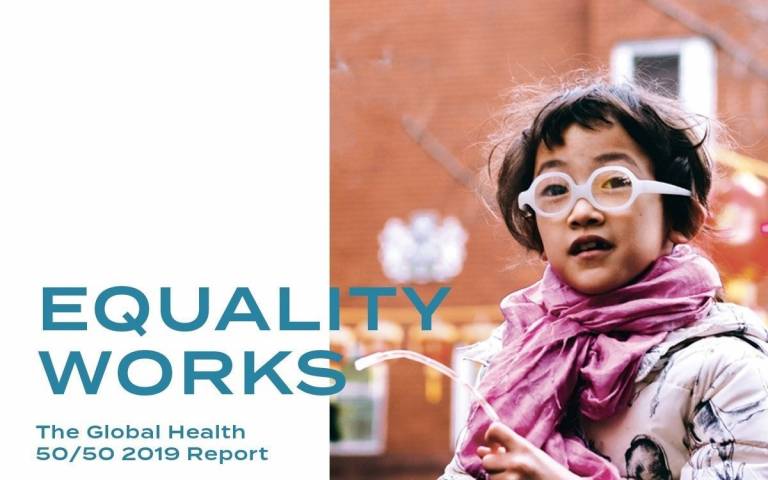Global health organisations failing on gender equality
7 March 2019
The majority of global health organisations are failing to deliver on sexual harassment policies, pay gap reporting and gender parity in leadership, according to a UCL co-led report of 198 global organisations.

The Global 50/50 report, launched today in Addis Ababa, Ethiopia by the country’s first female president Ms Sahle-Work Zewde, exposes pay gaps, lack of policies on parental leave, sexual harassment, flexible working and an absence of women in leadership roles.
“Despite more than a year’s worth of news headlines detailing widespread gender-based discrimination in workplaces around the world. Few of the world’s top global organisations active in health are achieving gender equality for their employees”, said co-founder of the Global 50/50 initiative, Professor Sarah Hawkes (UCL Institute for Global Health).
“However, as well as highlighting how far we have to go towards achieving workplace gender equality, we hope this annual report will show what positive steps organisations are beginning to make.”
The Global Health 50/50 review identifies 14 organisations as scoring highly on gender and health policies, including UN Women, the United Nations Development Programme and the United Nations Population Fund.
Key findings of the report include:
- Only 25% of organisations make public their gender pay gap data. Most of these are in one country (UK) with statutory mandatory reporting. Among UK organisations the median salary for women is 13.5% lower than for men, and the median bonus pay gap is 23% lower for women.
- Evidence collected from the US Internal Revenue Service reveals that among 27 leading global health NGOs, male CEOs are paid $41,000 more in salaries than female CEOs.
- Men are 50% more likely to reach senior management than women
- 7 out of 10 executive leaders and board chairs are men. Among senior management, less than 1 in 3 organisations have achieved gender parity, while for boards the parity figure drops to 1 in 4.
- Of 77 parental and flexible working policies reviewed, the range of paid leave available varies drastically from zero to 68 weeks. In addition, flexible working policies were located for only 30% of organisations, which help parents advance in the workplace by balancing caregiving responsibilities.
- Just 25% of those reviewed make their gender pay gap data public. Of those, only eight published that information voluntarily. The other 42 organisations that do so are in the UK, where reporting on gender pay gap information is mandatory.
- One quarter of organisations had sexual harassment policies in the public domain, highlighting the lack of transparency in how organisations tackle this issue. Among the policies reviewed, only 30% met best practice standards.
- Among the 140 organisations reviewed in 2018 and 2019, 20 have either newly developed or publicly shared their workplace gender equality policies.
Speaking ahead of the report launch, Jacinda Ardern, Prime Minister of New Zealand said: “Coming to light in the #MeToo era, the findings of this groundbreaking report prove that the fight for gender-equality is far from won. Global health organisations are failing to walk the talk.
“If there is one sector that should set precedent, it is global health. The field stands for principles of rights, fairness and universality, and strives to achieve health for all – particularly the most vulnerable”
Professor Hawkes added: “The GH5050 report shows the power of partnership. As an academic at UCL, I feel privileged to have collaborated with colleagues in the United Nations, civil society and others, to compile the world’s most comprehensive database on gender in global health. I look forward to leveraging our partnership as a catalyst for action to advance gender equality across the sector.”
Global 50/50 was launched in 2018 and ‘Equality Works’ is the initiative’s second annual report.
Links
Image
- Credit: Global 50/50
Media contact
Rowan Walker
Tel: +44 (0)20 3108 8515
 Close
Close

